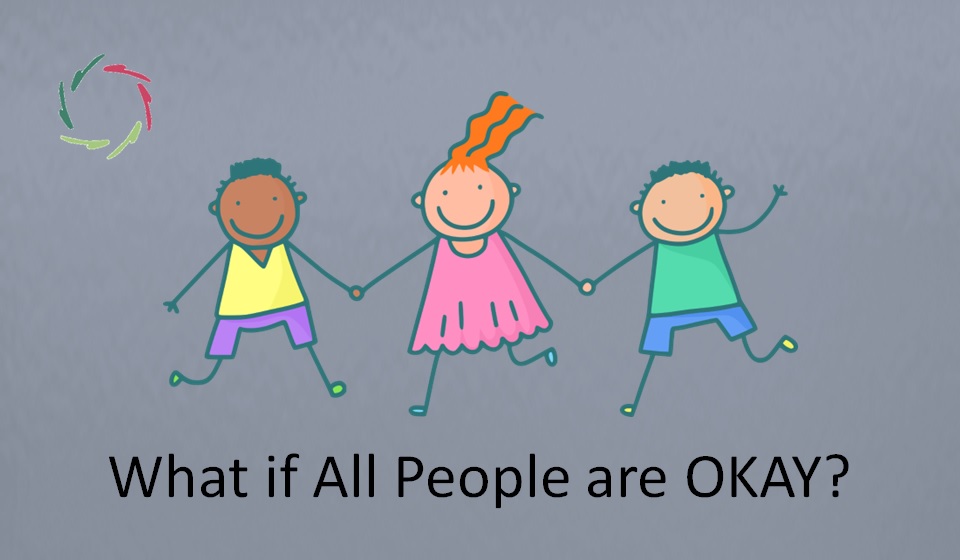Where do You Go to, My Planet?

Nowhere yet for a while, but people worldwide are rapidly going somewhere. Global politics is on the move. Much depends on how we understand and manage ourselves in-depth and how we deal with a pending paradigm shift at the core of who we are.
That sounds dramatic enough. Please, first read about the great mental paradigm shift, based on the scientific level where the brain and the mind largely coincide.
[OP = old paradigm; NP = new paradigm]
You know by now what the shift is about.
This is important in politics, increasingly also at the global scale. People search, accept, or elect leaders who either stay put in the safely known OP or evolve toward the NP ― of course, without using these specific terms. All in all, the crowds get the leaders they deserve, so the future of humankind lies in the hands of humankind.
Thus, a profound insight into us is direly needed ― not just abstract thinking in a philosopher’s armchair. It determines the near future of the planet. At least, of the people on it, and maybe the planet in a way.
This is basically not about the right versus the left in politics.
It may be, but in some countries, OP tends to be far left; in other countries, far right. Much depends on historical evolutions. The paradigm shift itself is neutral regarding left-right politics, although the related anxiety may be fueled by one side (or both) to try to mold the electorate.
Presently, in the West, <conservative vs. progressive> arguably fits the picture, but not exclusively. OP-NP is not necessarily neatly divided between political parties ― which does not diminish the tension.
Letting go versus holding on (to the OP)
This is as heavy as a paradigm shift concerning the core of the human being can be: ruthless while profound meaningfulness is at stake. If this is perceived by many to lie in the OP versus by many others in the NP, we have a recipe for high-voltage aggression.
Here comes the metaphorical flower bud again. It needs to open by itself, NOT be torn open from the outside. Such tearing damages the bud and provokes more anxiety. Even the perception of tearing can make vulnerable people increasingly anxious, especially through talking about it among themselves.
The paradigm shift needs to be realized following a gentle slope. That is also the most efficient. It may even be the only way to thoughtfully proceed.
Defending the OP may appear selfish.
As a matter of fact, it is ego-centered but not necessarily egoistic. To indiscriminately accuse OP-defenders of egoism is incorrect and surely not helpful, creating resentment and resistance. In combination with the anxiety, one quickly gets an aggressive reaction.
But eventually, almost nobody is against mental growth and opening up if the fear of the bud being torn can be relegated. OP-defenders may be only against NP-oriented progression if this is perceived as threatening to tear the bud. They, too, want natural growth.
Shift-anxiety
Anxiety is never a good adviser. In this case, it should be taken with utmost seriousness. What is at stake can lead to paranoid fantasies (see the news), conspiracy theories, and disregard of science and even truth as a worthwhile striving. What remains is a politics of anxiety.
On the other hand, one can deduce from such reactions that something deeper is going on than what is visible at the mental surface level. Within the shift, while not seeing the shift, much is not rational from the start. Being stuck in the pre-shift stage is the cause of the irrational mayhem and hinders the solution.
People feel their anxiety – consciously or non-consciously – then project it.
For instance, it can be projected into a threat from another (sub)culture perceived to destroy the well-known OP. One of these may be ‘the elite, bent on destroying the OP of us, the people, by imposing their ideology.’ There may be much pathos involved in this feeling of threat as if survival is at stake ― which is symbolically true.
<Own people first> is an OP-defensive reaction. Intriguingly, OP parties usually search for alignment with other OP parties from other countries. This shows that it’s not about ‘own people first’ but ‘OP first,’ defending the OP against impersonal forces (Europe, the deep state…).
Frequently, there is an imagined golden age in local history, when ‘things were pure,’ and ‘national identity’ was unthreatened. This is: when the tension toward the NP wasn’t felt.
OP-Leadership
In a democracy, people who try to hold on to the OP may choose autocratic-minded leaders who promise to keep things directly under control, cracking down even if people must die to retain this kind of control.
From the OP-view, the leader is a champion of law and order, ready with God’s help (or another ideology) to keep country, family, and the ‘bad ones’ under control ― the ‘good ones’ being those who support the OP-leader. This leader is generally an autocrat because he needs to show himself as a strong solution for all the violence / a country in chaos / the incompetence of the ruling class / the fear of hated minorities, the threatening ‘them,’ or of any X for that matter since the real thing is a symbolic projection.
This, of course, gives leeway to populists’ stoking more fear and anxiety for personal power or out of personal resentment. Since anxiety is principally not the result of a conscious decision, this amounts to mass manipulation of which, unfortunately, we see a lot. Such manipulation can be explicitly concocted or just the result of trial and error, together with a disdain for deontology.
There is only one good answer to all this.


